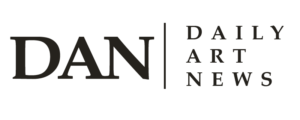April 13–September 4, 2022
Revolutionary Romances, a research and display initiative. Transcultural Art Histories in the GDR examines the cultural exchanges that took place between 1949 and 1990 between the GDR (German Democratic Republic) and the socialist-leaning nations and independence movements of Asia, Africa, and Latin America. The comprehensive study project began with a prologue exhibition and an international conference, and it will end with a sizable show at the Albertinum in the fall of 2023.
Different forms of socialism were emerging globally as a result of the Cuban Revolution, the decolonization processes taking place on the African continent, the Asian-African world’s demand for political and cultural self-determination at the Bandung Conference in 1955, and the growing number of national liberation movements. By emphasizing the Global South in its cultural and political endeavors, the GDR was able to distinguish itself from the FRG and establish state autonomy and cosmopolitanism while simultaneously projecting a positive image of the GDR as the “better Germany” (Federal Republic of Germany). These political and cultural links will be thoroughly examined for the first time in the multi-part research project Revolutionary Romances. Revolutionary Romances explores how the ideologically exaggerated leitmotifs of international friendship and solidarity not only legitimized the foreign policies of the GDR but also shaped the role of art and culture in the GDR’s relationships with the Global South through historical artworks, contemporary interventions, conversation series, conferences, a digital screening program, and a publication.
The Dresden State Art Collection will present hitherto unrecognized connections that cast doubt on the well-known East-West axis of the Cold War, departing from its own substantial holdings and collection history. The research investigates the appearance of such Revolutionary Romances in creative practice. What was the scope, how was it done, and who did it with? What role did the state think an active, political work of art played on the world stage, and how might this differ from what cultural workers actually encountered? What are the implications for today when attempting to reconcile the GDR’s claim for self-determination and human rights with its oppressive domestic politics or its call for state-imposed anti-racism with the real living and working conditions of foreign contract workers or students in the GDR?
A “prologue” research exhibition that will be on display until September 4 takes a preliminary look at these major issues. There is a tiny display of paintings, graphics, and films created by artists from the GDR, Cuba, Chile, and Vietnam. The artists Angela Ferreira, Laura Horelli, Emeka Ogboh, and Sung Tieu have made interventions across the Albertinum that challenge historical notions of international solidarity and shed light on their artistic and historical significance.
The Global GDR: A Transcultural Art History (1949–1990) was the title of an international symposium that Kerstin Schankweiler of the Technical University Dresden convened in collaboration with SKD from June 9–11. The conference, which was divided into three sections titled Foreign Cultural Policy, Transcultural Aesthetics of Socialism, and Transnational Networks and Arts Institutions, invited scholars and artists from around the world to talk about the cultural-political context of exchanges, show examples of internationalist art production, discuss transnational contacts between artists, and report on architectural projects. On October 13, Julia Bailey and I will co-host the symposium Revolutionary Romances: Into the Cold—Alternative Artistic Trajectories into (Post-)Communist Europe.
Revolutionary Romances is a crucial component of the SKD’s Kontrapunkte program, which examines how the public and museums in the GDR treated art, the differences between the ideological and aesthetic standards used to evaluate it, and the potential for involving society more fully in the creation of knowledge in museums. From the summer of 2022 until the end of the study project in late 2023, a program on the digital platform voices will feature contributions from worldwide curators.
Revolutionary Romances. Transcultural Art Histories in the GDR is an Albertinum project initiated and curated by Kathleen Reinhardt and Mathias Wagner.


